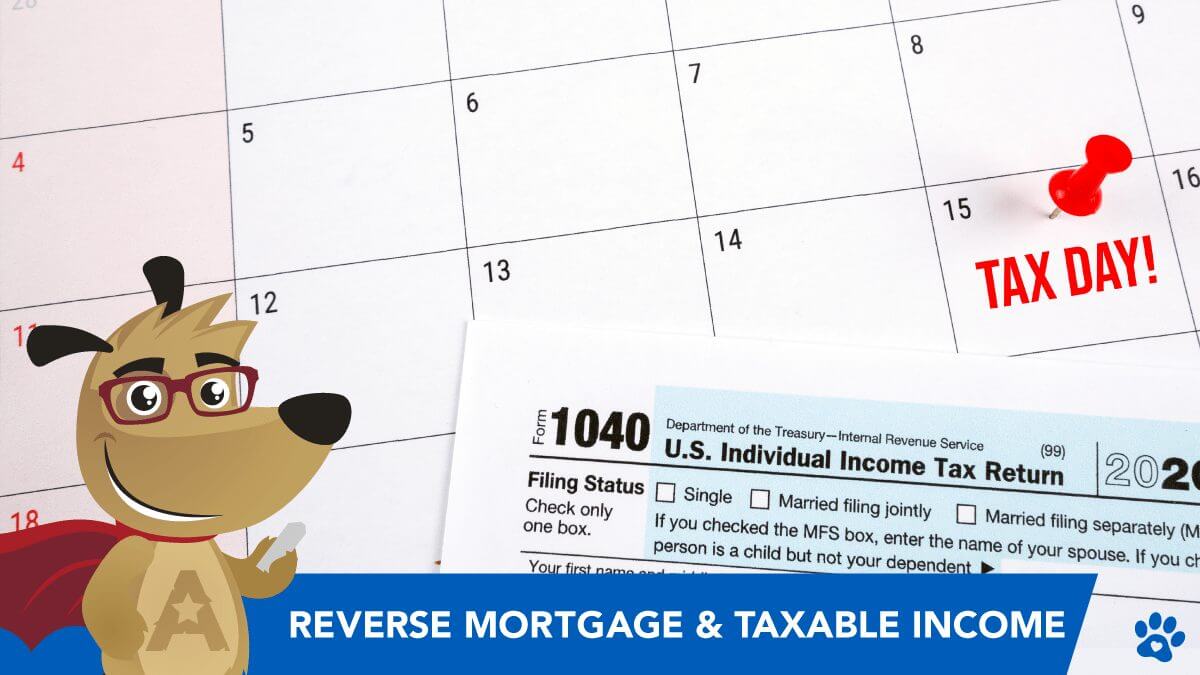
America’s #1 Rated Reverse Lender*
Learn How Reverse Mortgages May Affect Your Taxable Income
 |
Michael G. Branson, CEO of All Reverse Mortgage, Inc., and moderator of ARLO™, has 45 years of experience in the mortgage banking industry. He has devoted the past 20 years to reverse mortgages exclusively. (License: NMLS# 14040) |
 |
All Reverse Mortgage's editing process includes rigorous fact-checking led by industry experts to ensure all content is accurate and current. This article has been reviewed, edited, and fact-checked by Cliff Auerswald, President and co-creator of ARLO™. (License: NMLS# 14041) |
The economic downturn has taken its toll on many American households and especially on retirees. In fact, one study from Wider Opportunities for Women indicates that more than half of older households have incomes that don’t cover their basic living expenses.
To help, many baby boomers are turning to the equity they’ve built up in their homes to help by using a federally-insured Home Equity Conversion Mortgage (HECM) reverse mortgage.
Reverse Mortgages don’t necessarily affect your income taxes but before you take out the loan, it’s important to consider how the proceeds might affect your income eligibility for programs such as Social Security, Medicare, Medicaid, and Supplemental Security Income (SSI).
Here are three of the most common questions we receive about how a reverse mortgage can impact government programs.

Will I have to pay taxes on my reverse mortgage proceeds?
Answer: Money received through a reverse mortgage isn’t taxable because the Internal Revenue Service (IRS) considers it to be a “loan advance” rather than income.
Can I still receive Medicare and Social Security benefits?
Answer: Medicare and Social Security are both entitlement programs that consider your age rather than your income and assets.
That means that no matter your financial circumstances—and whether or not you have a reverse mortgage loan—you will be able to receive benefits from these two programs.
How will a reverse mortgage affect my eligibility for government assistance programs?
Answer: Even though your loan proceeds aren’t technically considered taxable, they could still affect your eligibility for some government assistance programs.
Programs such as Medicaid and Supplemental Security Income (SSI) are means-tested, so both your income and your assets are considered when determining whether or not you qualify.
Loan proceeds can be accessed in a few different ways: in a lump sum, as a monthly term or tenure payment, as line of credit, or in some combination of these options.
If you opt for a lump sum payment and put your loan proceeds in a savings account, those funds may make you ineligible for Medicaid and SSI because they may be viewed as an asset.
Reverse mortgages, benefits programs, and you
Even if you currently qualify for or receive Medicaid and SSI, you don’t need to rule out a reverse mortgage quite yet.
Rules regarding the amount of assets you can have while still qualifying or maintaining eligibility for Medicaid and SSI vary from state to state, so it’s best to consult a trusted tax or financial advisor to see how a reverse mortgage could affect your situation.
Federal Housing Administration-approved counselors may also be able to help you determine the alternative government programs you may qualify for using the National Council on Aging Benefits Checkup tool.
If you’re considering a reverse mortgage and are curious about how this kind of loan could help your particular situation, we’re here to help.
Other Articles in this category:

 Michael G. Branson
Michael G. Branson Cliff Auerswald
Cliff Auerswald

October 7th, 2024
October 17th, 2024
April 15th, 2023
April 21st, 2023
December 15th, 2022
December 15th, 2022
May 27th, 2021
May 28th, 2021
June 1st, 2021
January 13th, 2023
January 17th, 2023
May 24th, 2021
April 15th, 2021
April 19th, 2021
March 19th, 2021
March 23rd, 2021
November 13th, 2019
November 13th, 2019